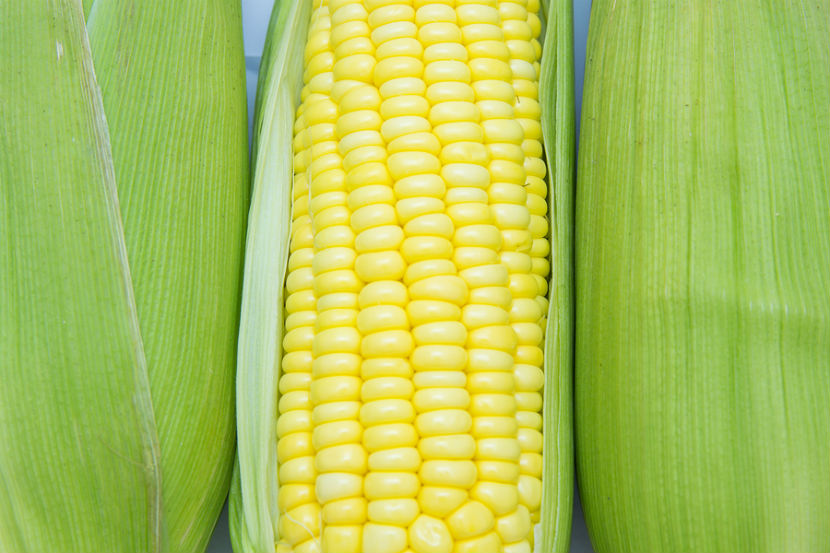
Have you ever wondered where food comes from? When we think about it, a picture of a farmer planting seeds often comes to mind. But did you know that some seeds are genetically altered in a laboratory before being planted? These seeds are called genetically modified organisms (GMOs) and they grow into genetically modified (GM) foods. Health Canada makes sure that all foods, including GM foods, are safe for us to eat. Read on to learn more about GMOs and GM foods.
What are Genetically Modified Organisms (GMOs)?
GMOs are organisms (like plants, animals or microorganisms) whose genetic material (DNA) has been altered in a laboratory. Their genes have been changed in a way that would not occur naturally.
GMOs can have their genetic material changed for one of three reasons:
-
to introduce a desirable characteristic (making crops resistant against certain plant diseases)
-
to remove an undesirable characteristic (to prevent browning in apples)
-
to enhance a desirable characteristic that occurs naturally, but is insufficient
What genetically modified foods are approved in Canada?
Canada has approved 15 GM foods which include four that are grown in Canada (canola, soybeans, corn and sugar beets) as well as GM foods that have been imported from other countries (alfalfa, cotton, papaya, and squash). Most of these GM crops are exported to other countries.
How are genetically modified foods regulated?
Before a GM food can be sold in Canada, Health Canada makes sure it is safe to eat and will not harm your health or the environment. Health Canada completes an assessment on all GM foods to ensure they are as safe and nutritious as foods already in the marketplace before they are allowed to be sold. A safety assessment can take many years.
Are genetically modified foods labelled?
It is not mandatory for GM foods to be labelled in Canada. However, some food companies choose to label their products “GMO free”.
Labelling of GM foods is challenging. This is because GM foods like sugar, canola and corn are widespread in our food supply. GM corn can be used to make high fructose corn syrup which is used in other foods (like cereal, yogurt, pop, frozen entrees, salad dressings and condiments). As a result, all of these foods would need to be labelled as having GM ingredients.
What are the benefits of genetically modified foods?
GM crops have been developed to have certain benefits. GM foods may:
-
Grow more easily in some environments (like dry soil conditions)
-
Produce more crops, helping to keep food prices lower
-
Ripen slower, last longer during shipping or bruise less easily
-
Be less at risk for diseases caused by insects or viruses
-
Need less pesticides (like herbicides and insecticides)
-
Have improved nutrient content (for example, vitamin A found in Golden Rice, a GM rice crop used to fight malnutrition in developing countries)
Common questions about genetically modified foods
-
Can GM foods cause allergies? There is no evidence that GM foods increase the risk of allergic reactions. Transfer of genes from high allergy foods is discouraged. If they are used, tests are done to make sure the product does not cause allergies. No allergic reactions related to GM foods have been reported.
-
Can GM foods cause resistance to antibiotics? There is no evidence to show that any antibiotic resistant genes used in GM foods can be transferred to humans.
-
Can GM crops contaminate regular crops? GM crops may blow into fields close by that grow regular crops. Strategies to manage this are being looked at such as having a clear separation between GM and non-GM fields. The Canadian Food Inspection Agency (CFIA) continues to address this concern.
What should I do if I’m concerned about eating genetically modified foods?
If you are concerned about eating GM foods, try the following tips:
-
Call food companies. If you are interested to know if a certain food contains GM ingredients, the food company may be able to answer your questions.
-
Visit specialty stores. Some smaller food companies label their products as “GMO free.”
-
Buy organic foods. GMOs are not permitted in organic farming.
-
Plant a garden. When you buy plants or seeds, ask if they have been genetically modified.
Bottom line
GM foods available in Canada are considered safe for us to eat. Health Canada monitors all GM foods to make sure they are as safe and nutritious as foods that are already in the marketplace before they can be sold. While Canada does produce some GM crops, most of them are exported. Labelling GM foods is not required in Canada, so it can be difficult to know if a food product contains GM ingredients. If you are concerned about eating GM foods, call food companies to see if they use GM ingredients, look for “GMO free” foods, buy organic foods or plant your own garden with GMO-free seeds.
Last Update – September 16, 2019